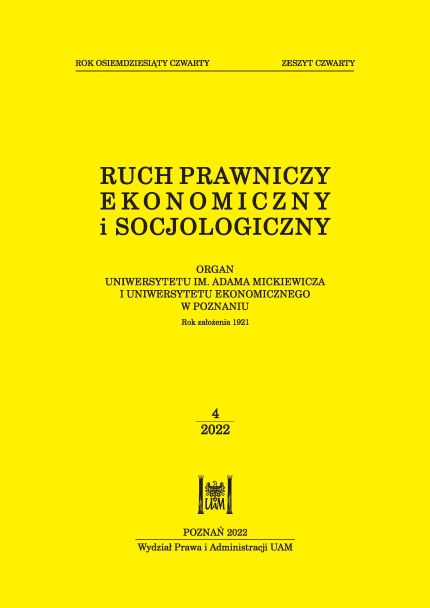Referendum w sprawach o szczególnym znaczeniu dla państwa jako symboliczna instytucja prawna
A referendum on matters of particular importance to the state as a symbolic legal institution
Author(s): Marek SuskaSubject(s): Politics / Political Sciences, Philosophy, Social Sciences, Law, Constitution, Jurisprudence, Constitutional Law, Philosophy of Law, Sociology of Law
Published by: Uniwersytet Adama Mickiewicza
Keywords: referendum; symbolic; symbolic law; political decisions
Summary/Abstract: The institution of a referendum on matters of particular importance to the state is disappointing for scholars because it does not fulfil its prima facie purpose – to enable citizens to make binding political decisions on the most important issues. This could lead to considering the referendum as an empty political promise and a useless institution. However, this would be inaccurate and premature. A referendum may potentially fulfil politically significant additional functions, such as giving special legitimization to certain political decisions or stimulating public debate. The aim of the article is to analyse the referendum on matters of particular importance to the state as a symbolic legal institution. The study was based on the observations presented in the literature on the phenomenon of symbolic legislation, applied appropriately to a selected fragment of the legal system, namely a single institution. A referendum on matters of particular importance to the state can therefore be perceived as an institution whose additional functions generally overshadow its prima facie purpose. At the same time, publicly declaring this prima facie purpose seems to affect the potential degree to which additional functions are implemented. For example, the impact on the public debate achieved by taking action to hold a referendum may be stronger if the public can be convinced that it is really about transferring a decision to the people. In conclusion, it is noticed that the implementation of the additional functions of the referendum in the legal system would probably not be possible in any other way than by making the referendum a symbolic institution. This does not mean, however, that the doctrine should accept every instance of using a referendum in order to perform one of its additional functions, and the ‘shame test’ described in the article may help in making an appropriate evaluation.
Journal: Ruch Prawniczy, Ekonomiczny i Socjologiczny
- Issue Year: 84/2022
- Issue No: 4
- Page Range: 21-35
- Page Count: 15
- Language: Polish

